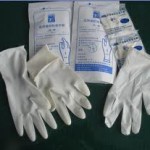March 22nd, 2011
Practice-Changing Articles III
Greg Bratton, MD
Recent advances and discussions in medicine are the cornerstone of Journal Watch. Here’s the third installment of the articles that made the biggest impression on me in the past 2 weeks. I hope you enjoy the articles I selected.
Please feel free to leave a comment on the articles — Do you like them? Dislike them? Agree, disagree, state your opinion, and participate in the discussion. And if you know of another recent interesting article, post a link to it. I would love to read it.
Greg Bratton, MD
Articles of Interest:
- Senior Match Day Results; Residencies Up In Pediatrics, Family Medicine – “Positions filled by U.S. seniors rose by 11% in family medicine … and family medicine matches were higher for the second year straight.” As a nation, the United States remains underserved in primary care, but it appears more medical students are willing to fill the gap. Once considered a cast-off specialty, Family Medicine residencies across the country are becoming more and more competitive, as evidenced by only 78 out of 453 programs not filling.
- Statins and Risk for Intracerebral Hemorrhage – In recent study of survivors of an intracerebral hemorrhage, findings suggested that statin use might be associated with higher risk for intracerebral hemorrhage (ICH). “Statin therapy was predicted to increase the baseline annual probability of recurrence of lobar ICH from approximately 14% to approximately 22%.” Although statins are a drug with many benefits ranging from cholesterol lowering to anti-inflammatory actions to prevention of macrovascular complications in those with diabetes, this study raises a new concern. However, until a true randomized clinical trial can be performed, we must consider these findings.
 Sterile Gloves to Obtain Blood Cultures? – Although it seems intuitive, a study published in the Annals of Internal Medicinereveals that the rate of positive blood cultures went down when sterile gloves were used. Mentioned in this review was the fact that the current guidelines from the Clinical and Laboratory Standards Institute do not require the use of sterile gloves. From personal experience, making this small procedural change would save time, money, and potential antibiotic resistance by limiting the number of “coag-negative staph in clusters” found in routine blood cultures.
Sterile Gloves to Obtain Blood Cultures? – Although it seems intuitive, a study published in the Annals of Internal Medicinereveals that the rate of positive blood cultures went down when sterile gloves were used. Mentioned in this review was the fact that the current guidelines from the Clinical and Laboratory Standards Institute do not require the use of sterile gloves. From personal experience, making this small procedural change would save time, money, and potential antibiotic resistance by limiting the number of “coag-negative staph in clusters” found in routine blood cultures.

